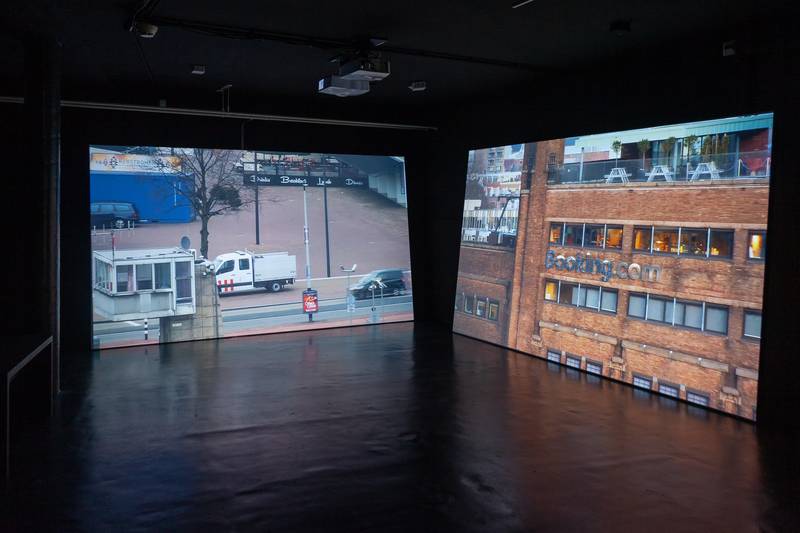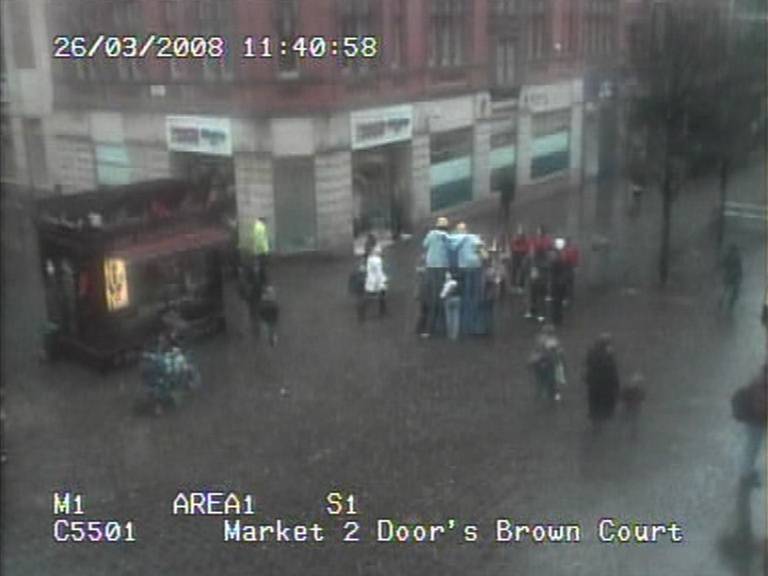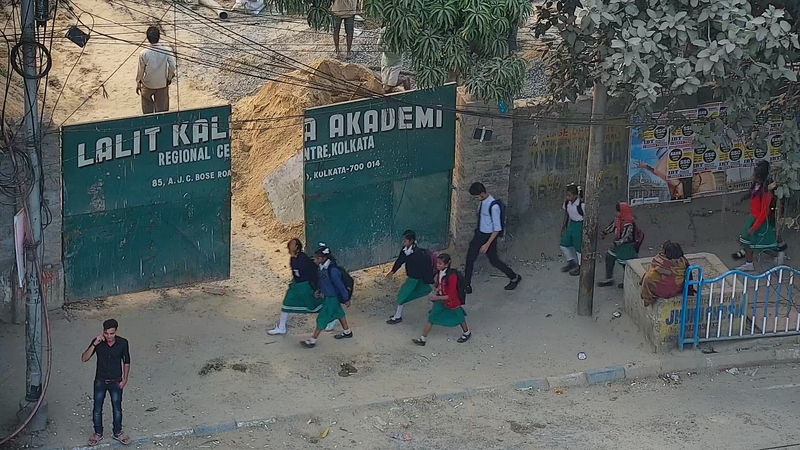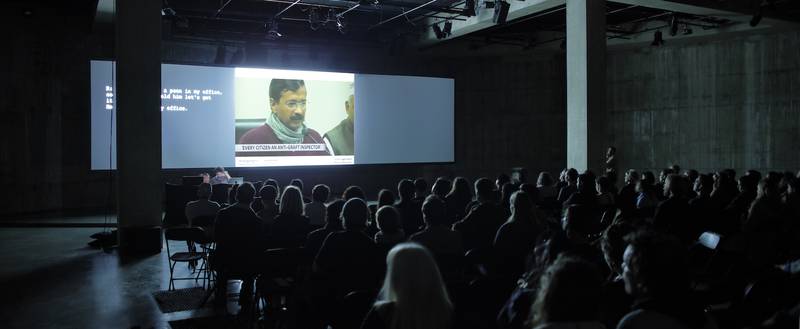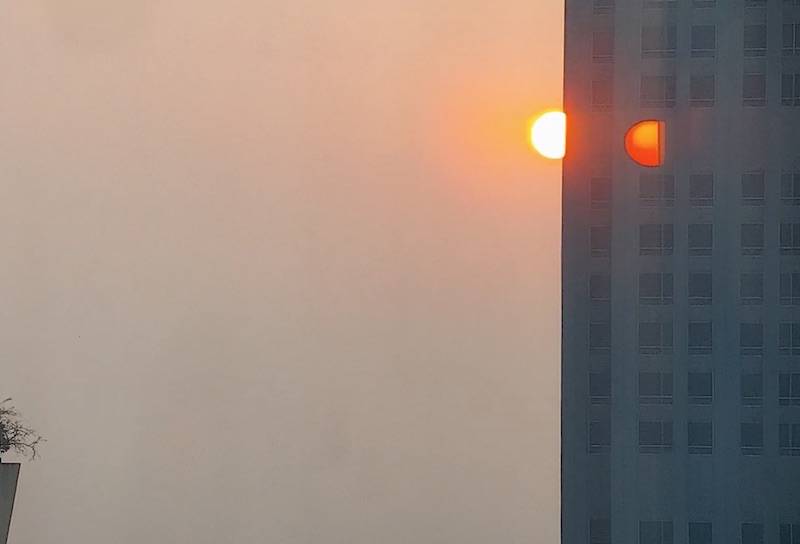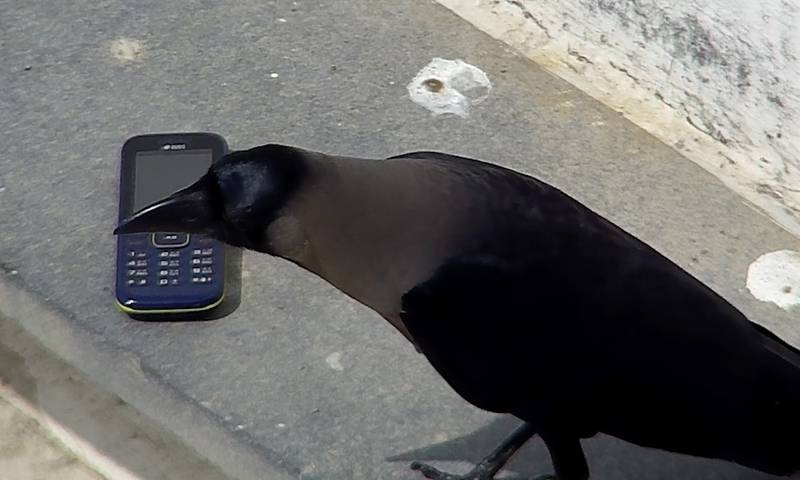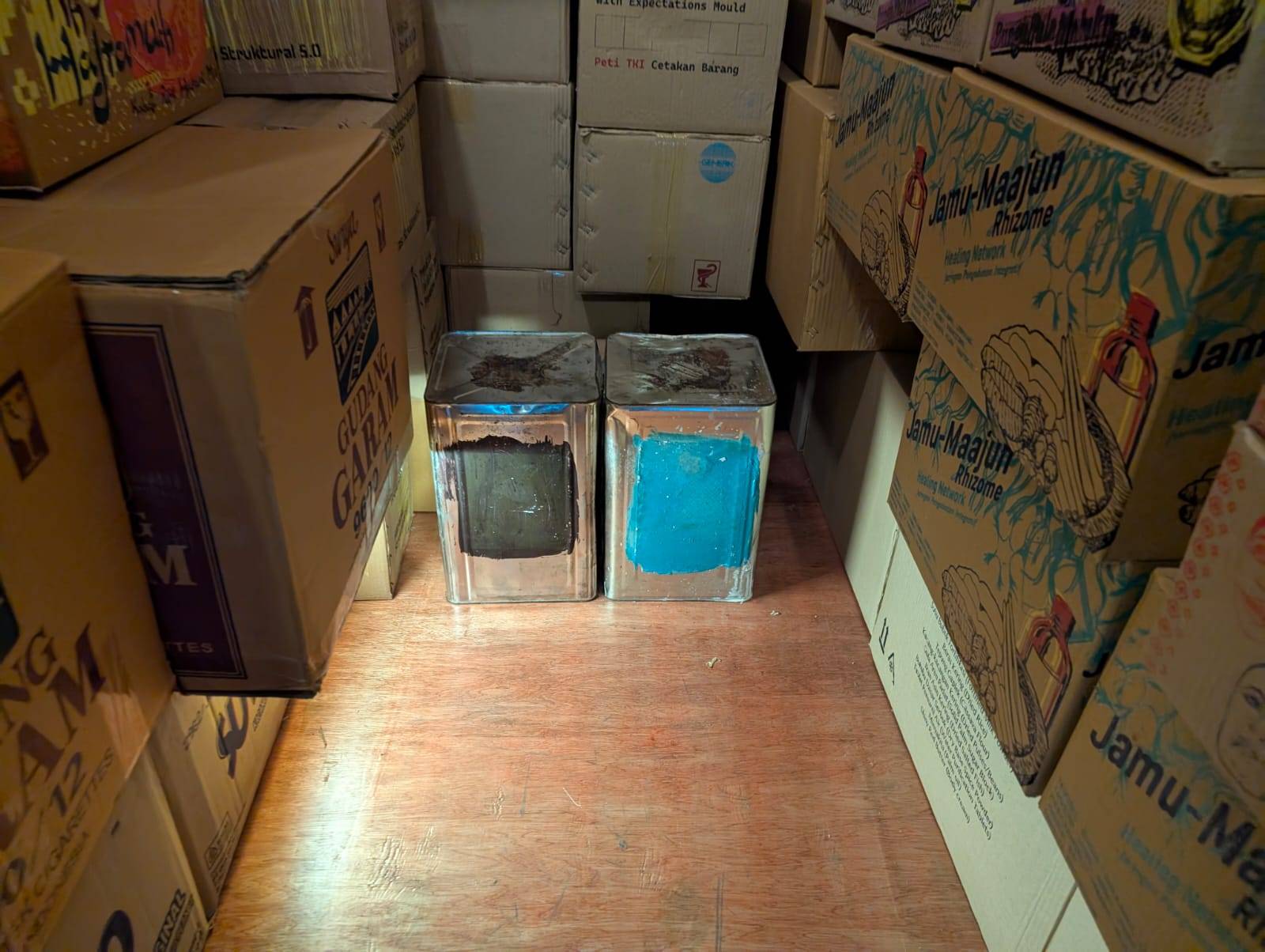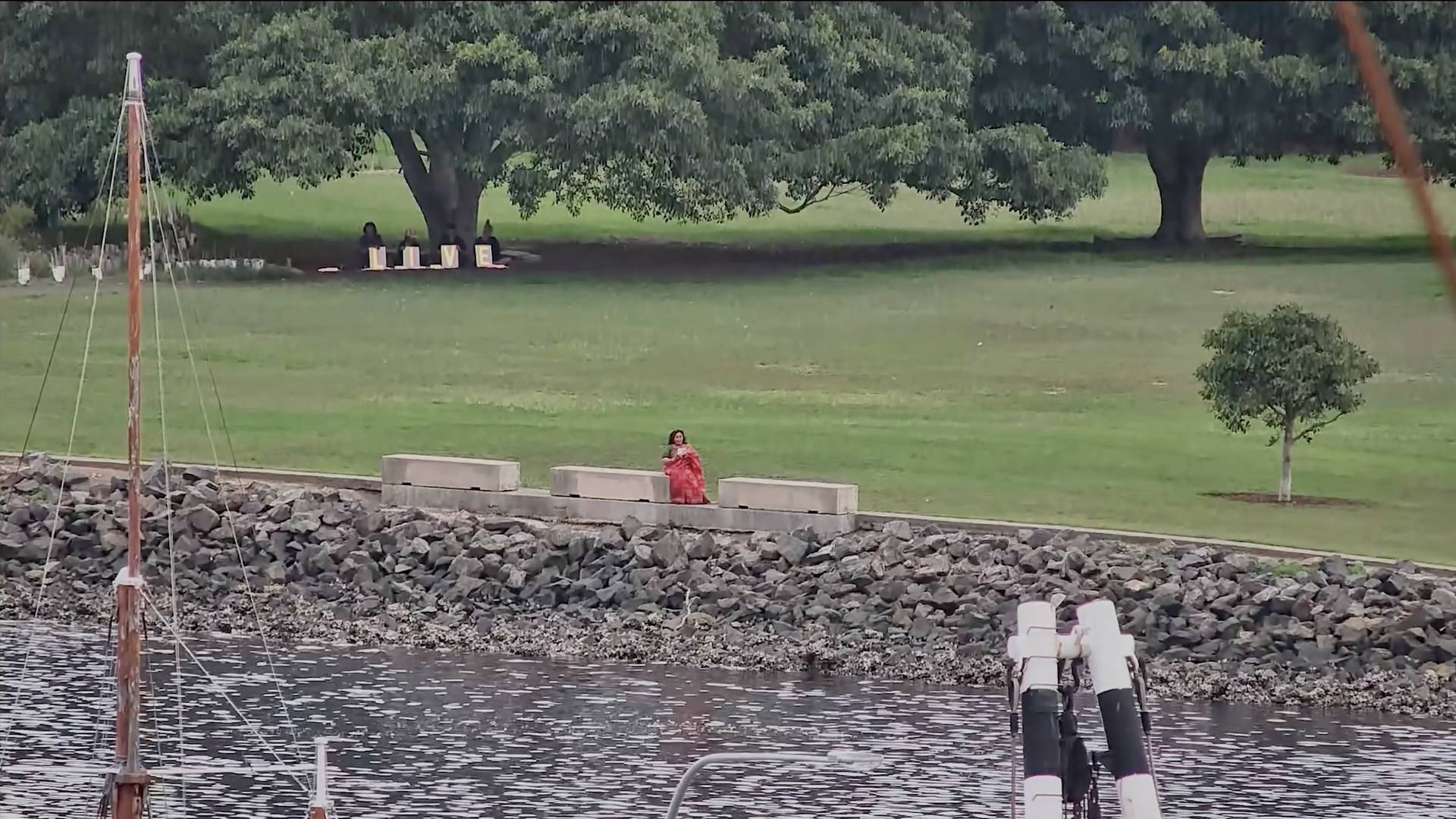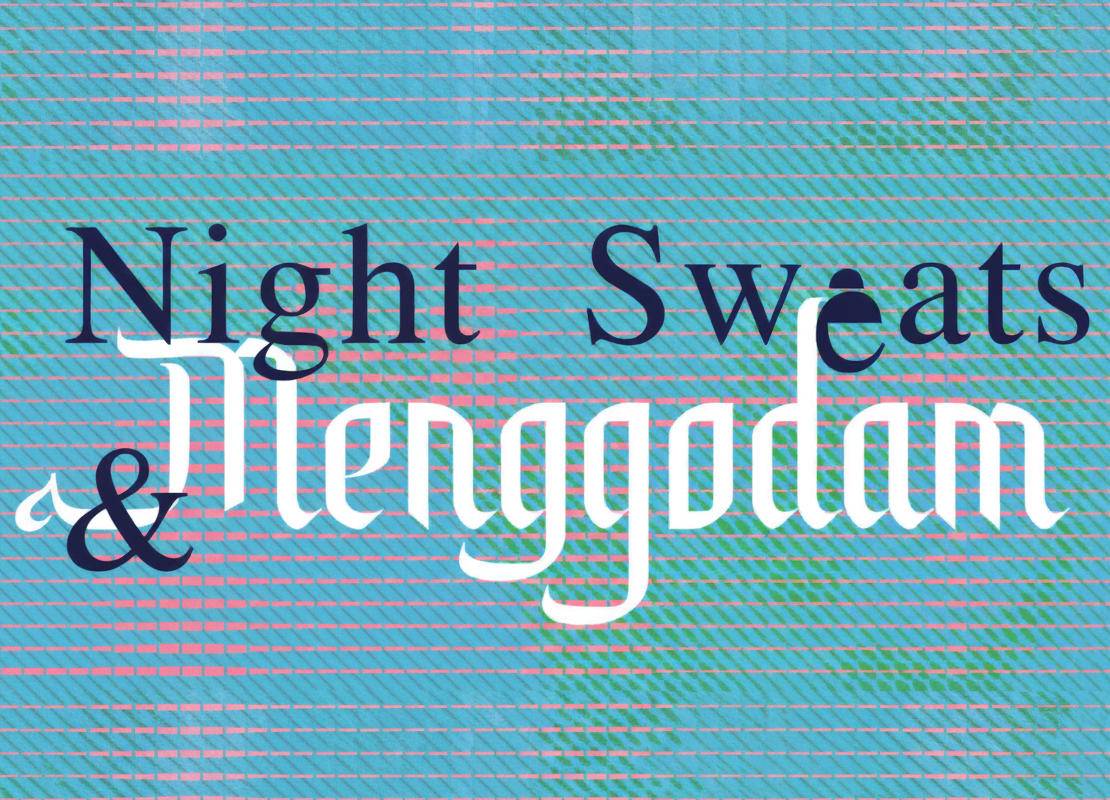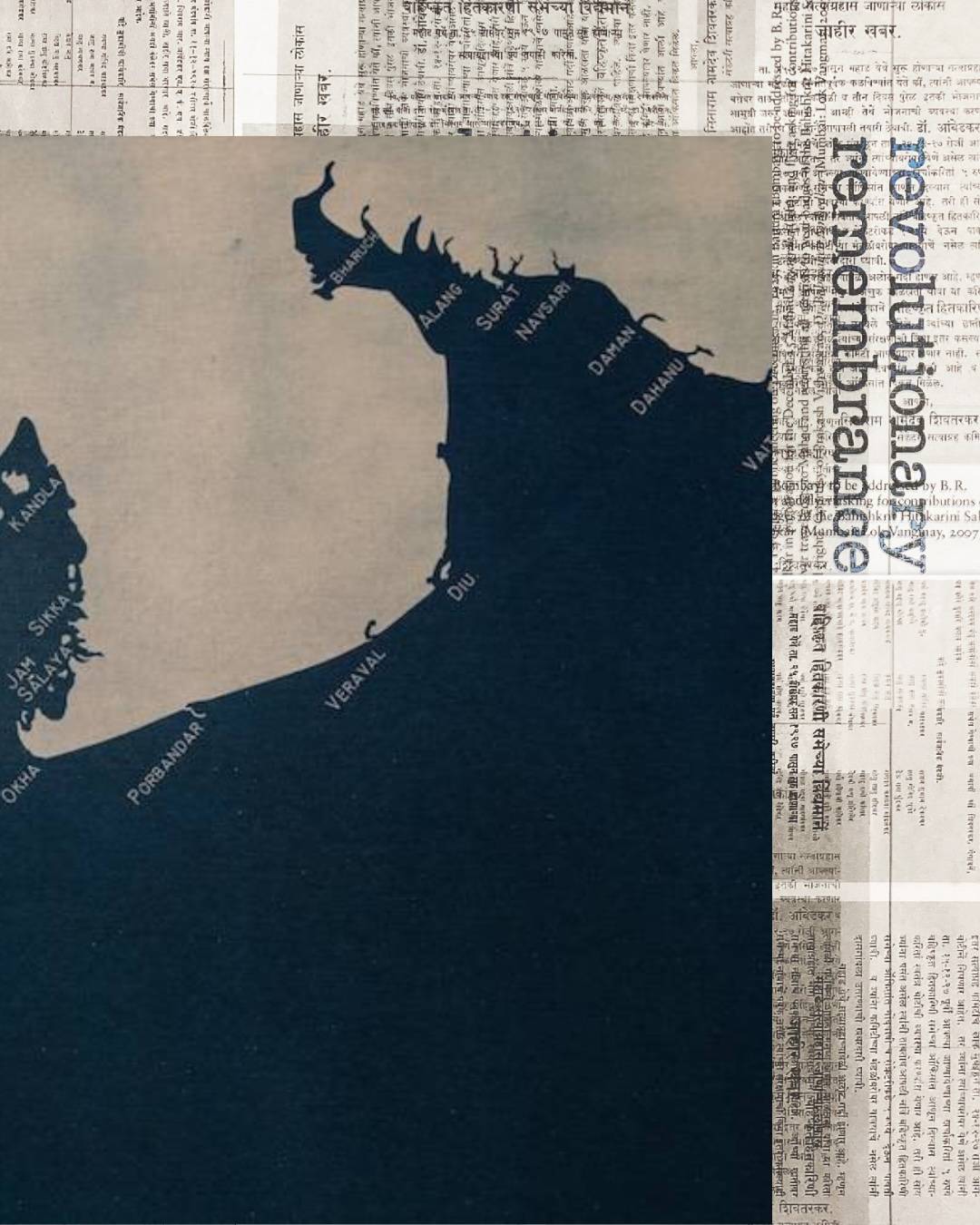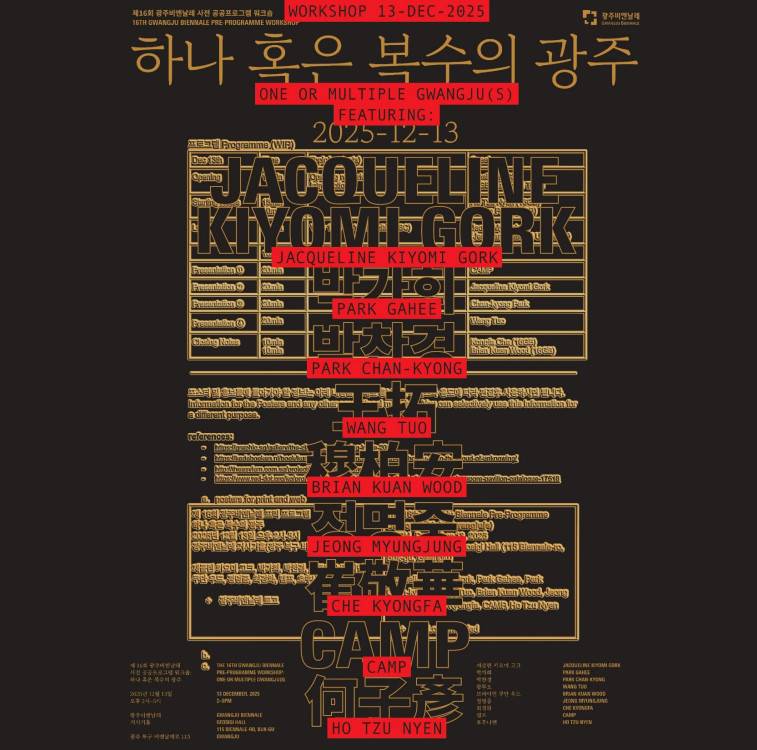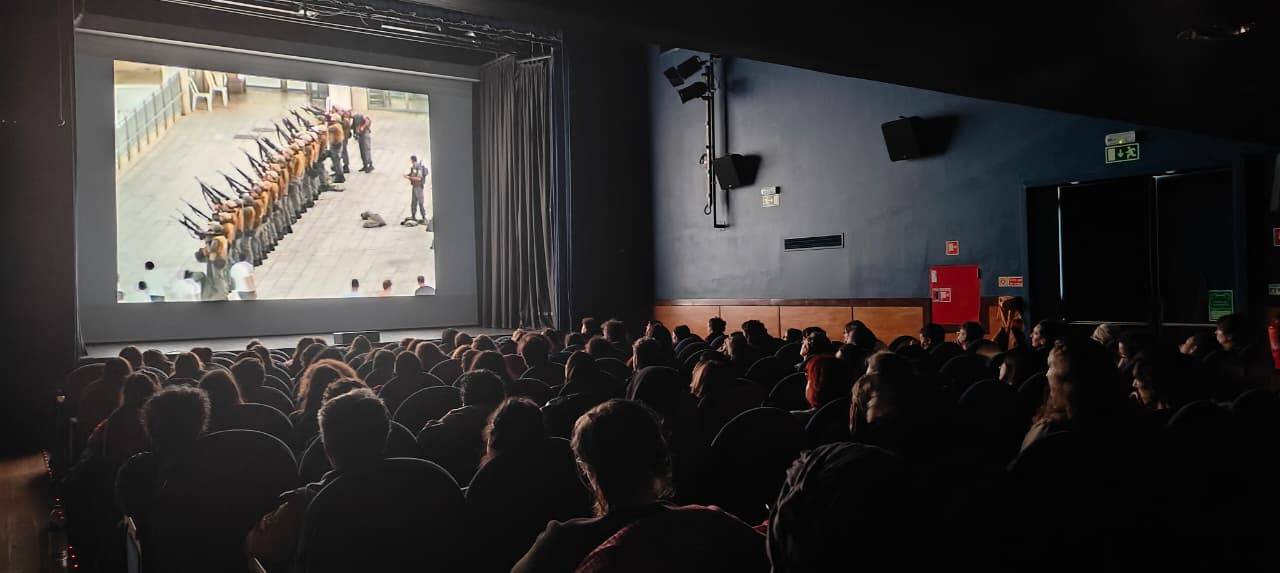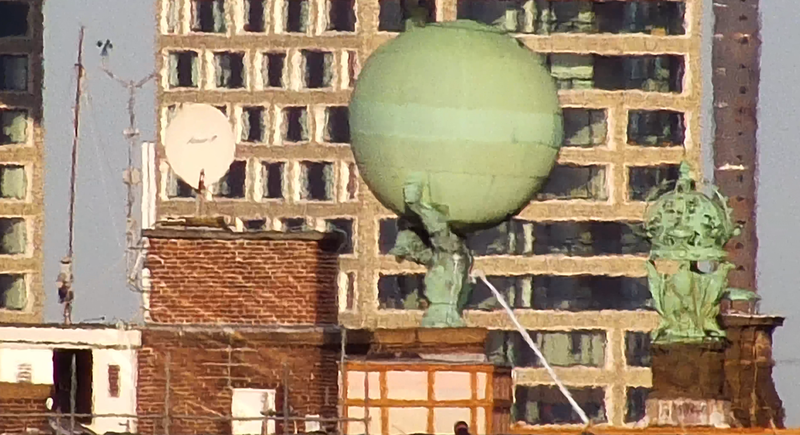
In Cameras Res at De Appel Amsterdam
March 16, 2019 - April 20, 2019
De Appel, Amsterdam
CAMP solo at De Appel
On three screens, a city-symphony filmed by automated CCTV cameras in Amsterdam. The optical and motor capacities of these cameras are pushed to an extreme. Certain human subjects reappear near or far in the images, suggesting a form of reciprocal knowledge or intent, a secret pattern between cameras and people.
In Cameras Res is an exhibition in which CAMP suggests the optical equivalent of the literary concept (in Latin) In Medias Res, in which the narrative begins in the middle of a plot, or evolutionary sequence. An In-Camera edit is one done without a separate editing process, like with a film camera. An In-Camera proceeding in the legal sense, is one from which spectators and jurors are excluded, thus the opposite of a public trial.
In Cameras Res takes its points-of-view from Amsterdam’s historical buildings, the former Royal Dutch Shell Headquarters (now A'DAM Tower), The former NHM building (Netherlands Trading Society, now Stadsarchief Amsterdam) and the former Tetterode printing foundry (now artist ateliers), connecting them to the surrounding landscape via camera-controlled shots. Each film in the exhibition was captured from a single camera position, and each uses a distinct editing technique. We see several micro and macro versions of the city, in different weather and light conditions.
Here, CAMP speculates about future images and future awareness.This exhibition is the resulting project of a De Appel commission.
In Cameras Res
3-channel HD CCTV video
20:40
Camera Software: Jan Gerber














